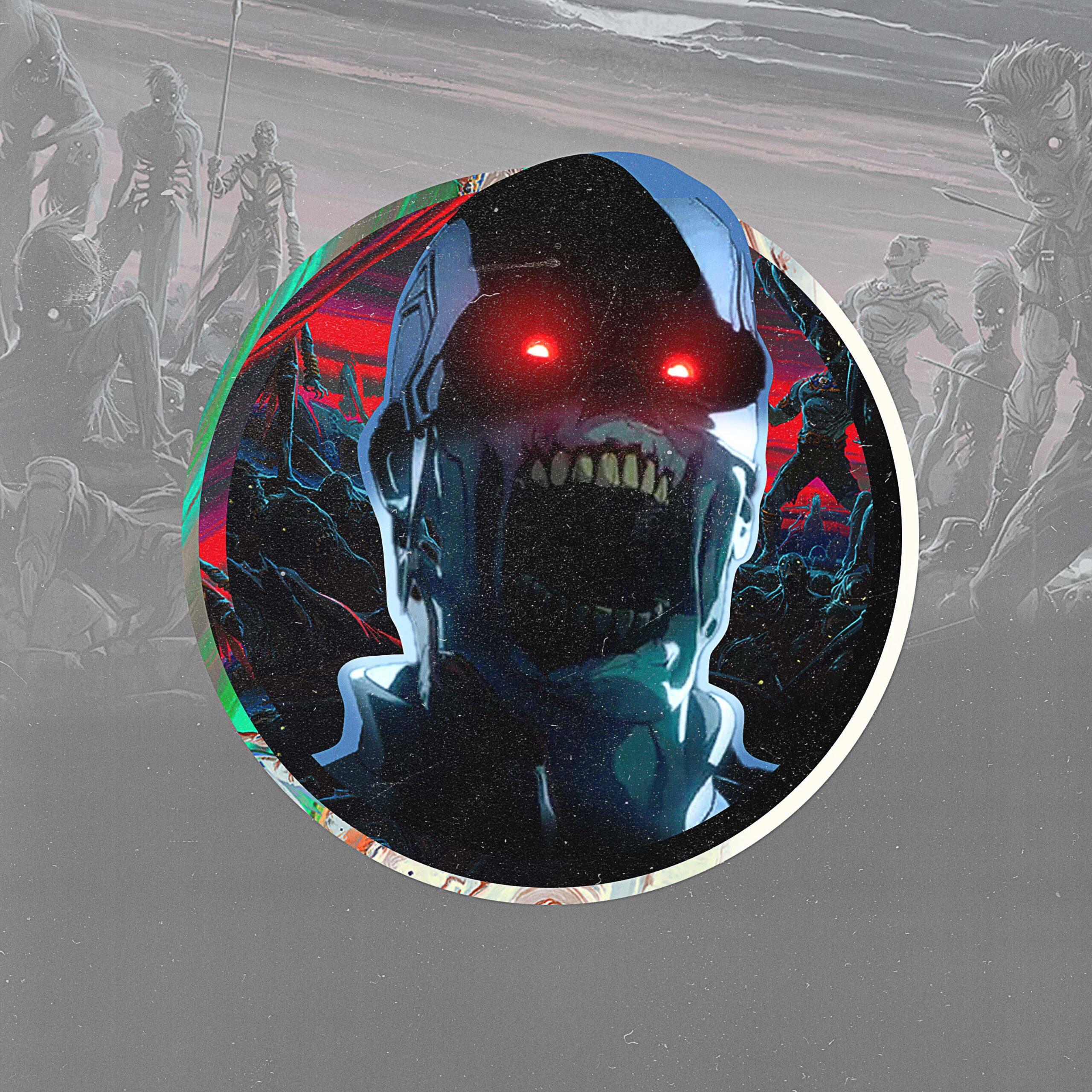
The Marvel Cinematic Universe is the ultimate sandbox, where filmmakers can play with countless characters, worlds, and stories. That’s especially true when it comes to animation, a medium unconstrained by many of the logistical and financial concerns that accompany big-budget, live-action productions. Marvel Animation’s latest series, Marvel Zombies, is a testament to that degree of creative freedom and endless storytelling potential.
Created by Bryan Andrews and Zeb Wells, the four-episode miniseries was released in its entirety on Wednesday. Marvel Zombies is a continuation of a standout Season 1 episode from the anthology series What If…? that centers on a world of Marvel superheroes overrun by a zombie apocalypse. Like What If…? before it, the series showcases how massive the MCU and its history have become after the dozens of movies and TV shows released since Iron Man started it all in 2008. And just like the anthology it’s spinning off from, Marvel Zombies fails to capitalize on the vast creative resources at its disposal.
In addition to picking up the story that started in “What If … Zombies?!,” Marvel Zombies carries over the anthology’s animation style—provided by Stellar Creative Lab—and the directing of Andrews. But unlike What If…?, the new series follows a more traditional episodic structure. The change affords Marvel Zombies a bit more time to develop some of its main characters, including Kamala Khan (voiced by Iman Vellani) and Shang-Chi (Simu Liu). Yet its ambitious story and epic scale and stakes are crammed into four half-hour-ish episodes, which doesn’t leave enough narrative space for the series to make a lasting impression.
Marvel Zombies still supplies plenty of fun moments, particularly for MCU superfans who’ll be able to understand every reference and callback. (And there are a lot of them.) What’s most entertaining is the series’ capacity to use Marvel characters in ways that aren’t beholden to maintaining the integrity of the MCU’s Sacred Timeline, which leads to unexpected appearances and situations. That includes the long-anticipated MCU debut of Blade, which is about as bittersweet as it is exciting after years of Marvel Studios mismanaging one of its most popular heroes.
Although Marvel Zombies features many live-action MCU actors reprising their roles, Blade isn’t voiced by Mahershala Ali. Todd Williams plays the part instead, but Blade is still rendered in Ali’s likeness. It’s a strange combination that makes for an awkward introduction of the Daywalker and a pretty apt representation of the mess that Marvel has made of the character’s live-action film, which has been delayed repeatedly. As Marvel Television head Brad Winderbaum recently told ComicBook.com, Marvel Zombies was never meant to deliver Blade’s first appearance.
“We felt like Blade was gonna be really exciting to put on screen, and we never thought that we would come out before the live-action Blade,” Winderbaum said. “It was always designed to be after. But we knew that we’d be in concurrent development. Sometimes when you’re chasing live-action like that, if they pivot, and you don’t pivot in the same way, you get stuck because animation needs a lot more lead time.”
As a result, Marvel Zombies combines Blade with Moon Knight, transforming Blade’s alter ego into the Fist of Khonshu after Moon Knight’s alter ego falls victim to the zombie plague. This decision allowed the series to be “more free and less tethered to the live-action plans,” according to Winderbaum, although it also had the adverse effect of introducing the hero while taking away much of what makes Blade, well, Blade. Even so, the famed vampire hunter is a perfect fit for a zombie-killing adventure, and he’s responsible for some of the best moments of the series, including his slaying of a zombified Ghost that was previously revealed in the show’s trailer.
In general, Marvel Zombies excels in its action sequences, its TV-MA rating allowing it to dial up the violence to the level that’s called for by a series of encounters with the undead. Several prominent superheroes suffer surprising deaths across the four episodes, a rarity in a cinematic universe where every hero’s greatest superpower is plot armor. However, some deaths are so surprising that they feel cheap and unceremonious. And Marvel Zombies wastes opportunities to stray from its quippy sense of humor, which contributes to the show’s uneven tone as it struggles to balance its lighthearted self-awareness and its attempts to fabricate sincere emotional drama at the end of the world.
At its best, Marvel Zombies deftly deploys the full arsenal of characters and concepts generated through years of Marvel world-building, from Namor’s Talokanil forces in the depths of the ocean to the Nova Corps in the far reaches of space. The series seamlessly weaves together minor details, making the MCU feel as fluid and connected as the Marvel universe is in the comics. It’s a shame, then, that the show is built on such a flimsy and unimaginative plot, relying on a MacGuffin—which in this case is a device used to communicate with the Nova Corps—for three episodes, just to pivot in the finale to an underdeveloped subplot that ties back to the original story introduced in What If…?
Similar to Eyes of Wakanda, another four-episode Marvel Animation miniseries from this year, Marvel Zombies is limited by its brevity. There are a lot of fun ideas—such as Kamala, Riri Williams (Dominique Thorne), and Kate Bishop (Hailee Steinfeld) taking a road trip through the zombie apocalypse—that hardly have a chance to develop as each episode rushes to the next destination (and the next opportunity to reintroduce another familiar face). As if to make up for lost time, the series often depends on the audience’s assumed knowledge of characters and their backstories to do the heavy lifting. At its worst, Marvel Zombies is a lazy remix of the MCU’s greatest hits, yet another quality it shares with What If…?
Without spoiling the specifics, Marvel Zombies ends with an intriguing cliff-hanger that suggests that its story might not be over. Although Marvel has teased the series as a “four-part event,” Winderbaum told Nerdist that there are plans in place for more installments—provided that the first batch of episodes does well enough to earn a second season.
“If we do get a chance to do another one, well, we’ve got a ton of material we’re ready to do as the next thing,” Winderbaum said. “There are other characters that did not show up in this that we were dying to have. Hopefully, they have their moment in the next one if we get it.”
If Marvel Zombies does return, it would be better served by more episodes to work with, hewing closer to the 10-episode structures of X-Men ’97 and Your Friendly Neighborhood Spider-Man. Between Eyes of Wakanda and Marvel Zombies, Marvel Animation has shown glimpses of tremendous potential to expand the MCU’s animated library, but by depriving its creations of the screen time to flourish, it continues to fall short of making something special. We’ve heard this a lot in recent years when it comes to Marvel Studios’ live-action struggles, but it might be time for the company’s animated division to switch up its formula, too.

